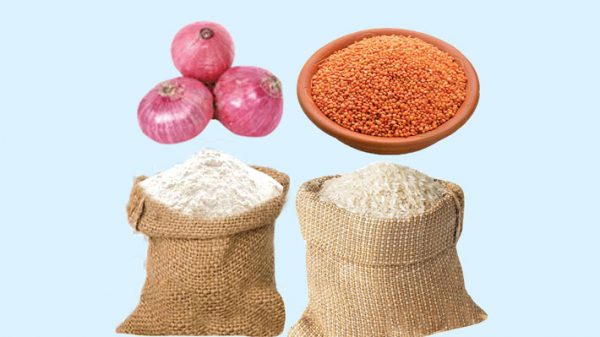Rural people feel the pinch of inflation most

- Update Time : Friday, May 20, 2022
- 165 Time View

Bangladesh’s overall inflation hit one-and- a-half-year high at 6.29 percent with rural people feeling the pinch more.
According to the latest figures from Bangladesh Bureau of Statistics, the point-to-point general inflation edged up for the third consecutive month in April as the commodity price volatility in the global and local market continues. It was the highest since October 2020 when the inflation hit 6.44 percent.
The inflation climbed to 6.22 percent in March and 6.17 percent in February. However, there was a modest slowdown in inflation in January after a six-month rising streak, the statistics showed.
Economic analysts, however, have a different view about such officially estimated inflation rate, which they say doesn’t reflect the ground reality that has completely changed since the start of the Russia-Ukraine war. Some even criticised the BBS inflation calculation method branding it as “unscientific.”
The latest BBS data showed that the non-food inflation jumped year-on-year to 6.39 percent in April from 6.04 percent in March, while the food inflation declined to 6.24 percent from 6.34 percent in March.
The general inflation in rural areas jumped to 6.59 percent last month from 6.52 percent a month ago with non-food inflation rising from 6.15 percent to 6.50 percent and food inflation modestly declining from 6.71 percent to 6.64 percent.
The general inflation also increased in urban areas, however, at a lower pace to 5.75 percent from 5.69 percent in March. The urban non-food inflation rose to 6.25 percent from 5.90 percent while the food inflation fell to 5.31 percent from 5.49 percent.
Monthly Consumer Price Index (CPI) of BBS surged 0.73 percent on an average in the month of April from 0.62 percent rise in March.
The data showed monthly food inflation was recorded at 0.84 percent in April over 0.74 percent increase in March. The rise in monthly non-food inflation was lower at 0.56 percent while it increased by 0.43 percent a month earlier.
Private think tank South Asian Network of Economic Modeling (SANEM) said the actual inflation rate in the country is double the BBS estimate. In a recent study, it found 12.47 percent urban inflation and 12.10 percent rural inflation. The report was published in early March.
SAENM said BBS uses a new base year to show lower inflation and the government’s estimate of commodity price hike doesn’t show the real picture. It also warned that such an estimate may hurt the recovery process from the pandemic shocks.
At a budget discussion on Monday, Distinguished Fellow of Centre for Policy Dialogue (CPD) Dr Debapriya Bhattacharya said: “BBS inflation calculation is not realistic and is unscientific. It is not impossible that the inflation rate may have jumped close to 12 percent, given the present market situation.”
Average annual inflation during March 2021 to April 2022 period was recorded by BBS at 5.81 percent, which was slightly higher than the government target of 5.3 percent for the fiscal year 2021-22.















